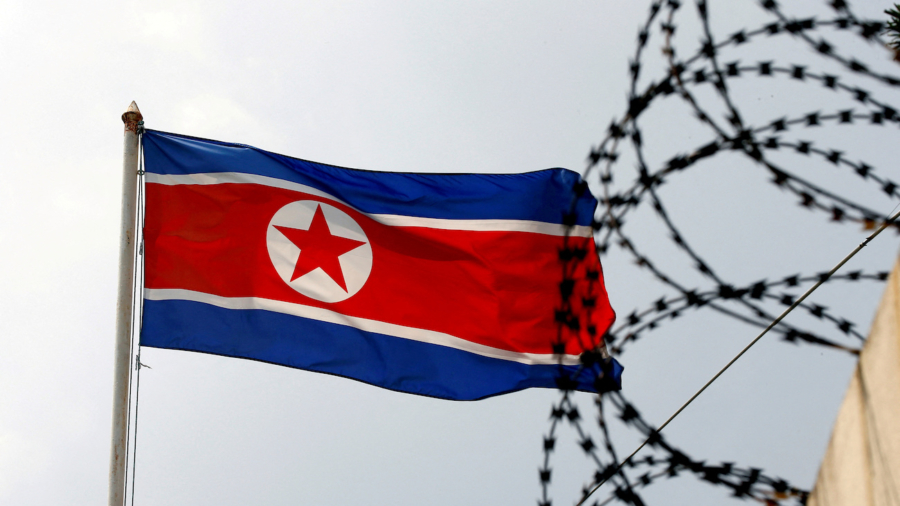Japan, South Korea, and the United States held trilateral talks on Monday to discuss countermeasures to North Korea’s “series” of ballistic missile launches—the fourth already this month.
During the call, U.S. special envoy for North Korea Sung Kim expressed America’s concern over “the latest in a series of ballistic missile launches by the DPRK this month,” U.S. State Department spokesman Ned Price said in a statement.
Kim reiterated that North Korea’s actions were in violation of multiple U.N. Security Council resolutions prohibiting the country from engaging in ballistic missile activities, and called on North Korea to cease its “unlawful and destabilizing activities” and reopen dialogue, Price added.
In a return to old diplomatic approaches, the United States said its offer for open dialogue was “without preconditions.”
Representatives of the three allied nations agreed to continue close coordination in responding to Pyongyang’s destabilizing actions.
South Korea and Japan reported Monday that North Korea launched two suspected ballistic missiles into the East Sea from Sunan Airfield, the fourth such launch this month.
North Korea on Tuesday made its first comments on the tests, saying that it tested firing two “tactical guided missiles” to ensure the accuracy of its weapons system, which is under production, according to Pyongyang’s state-controlled media Korean Central News Agency (KCNA).
“The two tactical guided missiles launched in the western area of [Pyongyang] precisely hit an island target in the East Sea of Korea,” the regime’s media mouthpiece claimed.
According to The Japan Times, Japan’s Defense Ministry added on Tuesday that it believes the suspected short-range ballistic missiles were a solid-fuel type known as the KN-24, which Pyongyang also tested in March 2020.
North Korea’s KN-24 resembles the U.S. MGM-140 Army Tactical Missile System (ATACMS) and is designed to evade missile defences and carry out precision strikes, he said.
Earlier, Pyongyang claimed that another two other missile tests it performed on Jan. 5 and Jan. 11 were “hypersonic” missiles. Those tests prompted the Biden administration to impose its first sanctions against Pyongyang on Jan. 12, and to call on the U.N. Security Council to blacklist several North Korean individuals and entities.
That was followed by another test by North Korea on Jan. 14, when the regime fired another two tactical guided missiles from a train. North Korea’s Foreign Affairs Ministry had issued a statement ahead of the missile launch berating the United States for imposing sanctions on Pyongyang and warning of a “stronger” reaction if Washington maintains its “confrontational” stance.
Meanwhile, U.N. spokesman Stephane Dujarric called the North’s tests on Monday “increasingly concerning” during a briefing, calling for all parties to return to talks to defuse tension and promote a “very verifiable denuclearisation of the Korean Peninsula.”
Melanie Sun and Reuters contributed to this report.
From The Epoch Times

